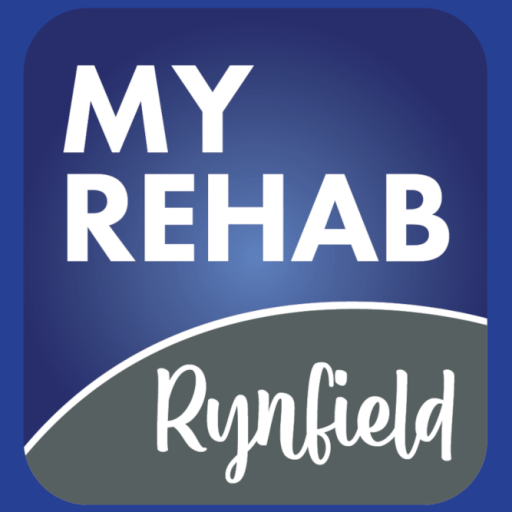
Relapse Prevention Techniques for Recovery
Relapse Prevention Techniques for Recovery
When striving for recovery, we utilise various techniques for relapse prevention. We identify triggers like stress or social situations and create coping strategies. Building coping skills involves managing cravings and emotions with tools like deep breathing. Strong social support from networks and support groups is key. Healthy lifestyle choices, such as exercise and a balanced diet, boost physical and mental well-being. Mindfulness and self-care practices like relaxation and mindfulness aid in managing stress and triggers. Each of these techniques plays a vital role in our journey towards successful recovery.
Identifying Triggers and High-Risk Situations
In addiction recovery, recognising triggers and high-risk situations is crucial for maintaining sobriety and preventing relapse. By understanding what situations, emotions, or people may lead us back to substance use, we can proactively avoid or cope with them. Triggers can be diverse, ranging from stress and negative emotions to certain places or social interactions. We need to identify our specific triggers and develop strategies to navigate them successfully.
One effective method is creating a trigger list, outlining each trigger and a corresponding coping mechanism. This empowers us to respond thoughtfully when faced with challenging situations. Moreover, practicing mindfulness and staying present at the moment can help us recognize triggers as they arise, allowing us to choose a healthy response.
Building Coping Skills and Stress Management
Understanding triggers and high-risk situations is foundational, and now we focus on developing coping skills and managing stress to navigate these challenges effectively. Developing coping skills involves learning how to deal with cravings, negative emotions, and difficult situations without turning to substances. It’s crucial to identify healthy coping strategies that work for us individually, such as deep breathing exercises, mindfulness techniques, engaging in hobbies, or seeking support from loved ones.
Stress management plays a key role in relapse prevention. Stress can often trigger cravings and weaken our resolve, making it essential to have effective stress management techniques in place. Regular exercise, adequate sleep, maintaining a balanced diet, and practicing relaxation techniques like yoga or meditation can all help in reducing stress levels.
Enhancing Social Support Networks
Building strong social support networks is crucial for maintaining sobriety and navigating the challenges of recovery effectively. Surrounding ourselves with friends, family, or support groups who understand our journey can provide encouragement, accountability, and a sense of belonging. By sharing our experiences and emotions with trusted individuals, we can alleviate feelings of isolation and find comfort in knowing that we are not alone in our struggles.
Regularly engaging with our support network through phone calls, meetings, or social activities can reinforce our commitment to sobriety and remind us of the progress we have made. Attending group therapy sessions or participating in community events can also help us build new connections and strengthen existing relationships. These interactions not only offer emotional support but also provide opportunities for personal growth and learning from others’ experiences.
In times of temptation or crisis, reaching out to our social support network can be a lifeline, offering guidance, perspective, and encouragement to stay on the path to recovery. By nurturing these relationships and actively seeking support when needed, we can enhance our resilience and fortitude in facing the challenges that may arise during our journey to sobriety.
Implementing Healthy Lifestyle Practices
Let’s explore effective ways to incorporate healthy lifestyle practices into our daily routine for optimal well-being and recovery. One key aspect is maintaining a balanced diet rich in nutrients to support physical and mental health. This includes incorporating plenty of fruits, vegetables, whole grains, and lean proteins while minimising processed foods and sugary drinks. Regular physical exercise is also crucial for boosting mood, reducing stress, and improving overall health. Finding activities we enjoy, whether it’s walking, yoga, or dancing, can make staying active more enjoyable and sustainable. Moreover, ensuring an adequate amount of quality sleep each night is vital for our recovery journey, as it allows our bodies to rest, recharge, and repair.
Hydration is another essential component of a healthy lifestyle, so remember to drink enough water throughout the day. Engaging in hobbies and activities that bring us joy and relaxation can further contribute to our well-being. By prioritizing these healthy practices and making them a regular part of our routine, we can enhance our physical and emotional resilience, ultimately supporting our recovery journey.
Practicing Mindfulness and Self-Care
Practicing mindfulness and self-care is essential for nurturing our well-being and supporting our journey towards recovery. Mindfulness involves being fully present in the moment and acknowledging our thoughts and feelings without judgment. By cultivating this awareness, we can better manage stress, cravings, and triggers that may lead to relapse. Engaging in self-care activities such as exercise, meditation, or hobbies not only promotes relaxation but also boosts our self-esteem and resilience.
Taking time for ourselves allows us to recharge and stay grounded during challenging times. Mindfulness practices like deep breathing or progressive muscle relaxation can help us stay centered and cope with cravings. Prioritizing self-care activities that bring us joy and fulfillment can enhance our overall mental and emotional well-being.
Incorporating mindfulness and self-care into our daily routine is a powerful way to cultivate a supportive environment for our recovery journey. By nurturing our minds and bodies, we strengthen our resilience and empower ourselves to overcome obstacles on the path to lasting sobriety.
How Can I Rebuild Trust With Loved Ones After a Relapse?
We understand the challenge of rebuilding trust with loved ones after a relapse. It requires open communication, honesty, consistency, and a willingness to make amends. Together, we can work towards restoring relationships through patience, understanding, and commitment.
Are There Specific Strategies for Managing Cravings in Public Settings?
In public settings, we utilise mindfulness techniques, deep breathing, and diversion methods to manage cravings effectively. We prioritise self-care, communicate openly with our support system, and create healthy boundaries to navigate challenging situations with resilience.
What Role Does Gratitude Play in Preventing Relapse?
Gratitude fosters resilience and a positive mindset, supporting recovery efforts. It shifts focus from cravings to appreciation, helping us stay grounded and motivated. Practicing gratitude daily can be a powerful tool in preventing relapse and maintaining sobriety.
Can Hobbies and Interests Help Prevent Relapse?
Hobbies and interests play a crucial role in preventing relapse. Engaging in activities we love boosts mood, reduces stress, and provides a healthy outlet. It helps us stay focused on positive habits and maintain our recovery journey.
How Can I Navigate Social Events Without Feeling Triggered?
We navigate social events by being mindful of triggers, staying connected with supportive individuals, setting boundaries, and having exit strategies. We prioritise self-care, communicate our needs, and engage in activities that align with our recovery goals.
As we navigate the road to recovery, let us embrace the power of relapse prevention techniques. By identifying triggers, building coping skills, enhancing our support networks, implementing healthy habits, and prioritising self-care, we empower ourselves to overcome the challenges of addiction. We can create a life filled with resilience, strength, and lasting sobriety. Let us continue on this journey with determination and support, knowing that we have the tools and knowledge to thrive in our recovery
